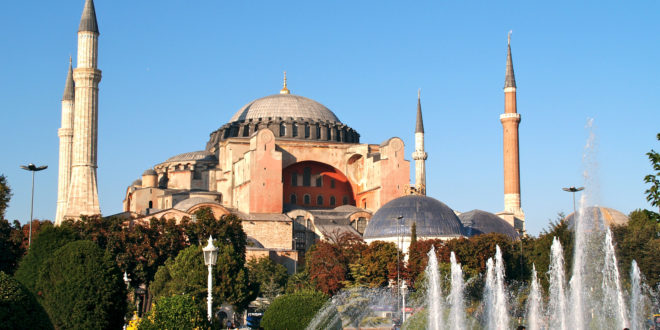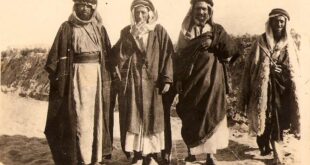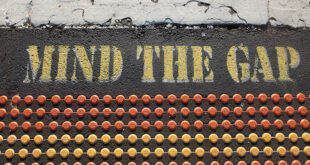Issue 30, summer/fall 2020
https://doi.org/10.70090/OMR29RMA
Scroll down for the Arabic abstract.
Turkey’s Council of State, the highest Turkish administrative court, handed down its decision on July 10, 2020 regarding Hagia Sophia. The council reversed the monument’s status from a museum back into a mosque as from July 24, sparking heated debates between those in favor of the decision and those opposed. Opposition has not been restricted to non-Muslims, with many Muslims expressing their rejection of the decision in their personal as well as institutional capacities. Arguments and counterarguments have been put forward in support of both stances, but several historical facts, political objectives, and pieces of religious referential proof have been either ignored or not given adequate respect in this decision based on religious fervour. The author has highlighted the intense coverage of the decision by international mass media, officials, and official entities; with stances varying between decision-supporting/rejecting (Islamic) institutions. While several diplomatic statements have expressed concern and/or rejection, UNESCO has done all but threatened to reconsider the status of the World Heritage-listed site. Accordingly, an analytical objective approach is adopted towards the arguments and counterarguments put forward, including (1) a historical overview of the monument, (2) a referential religious accounting of the issue, (3) a review of arguments both for and against the decision, and (4) the legal and religious effect(s) of the decision.
آيا صوفيا: قراءة وتحليل للحجاج الإعلامي والديني
قررت المحكمة الإدارية العليا التركية يوم 10 من تموز/يوليو 2020 تحويلَ متحف "آيا صوفيا" إلى مسجد اعتبارا من يوم 24 من الشهر ذاته، فاشتد الجدل إعلاميا بين التأييد والمعارضة؛ علما بأن المعارضة لم تقتصر على غير المسلمين، بل أعرب مسلمون كُثر– أفرادا ومؤسسات– عن رفضهم القرار، وتبارى طرفا التأييد والمعارضة في سَوْق الحجج المعضِدة لمواقفهم. وافتقر الكثير من حجج الطرفين إلى استجلاء الحقائق التاريخية والمرامي السياسية والتأصيل الديني لإجراءٍ أريدَ له أن يبدو دينيا باعثا عواطفَ دينية. وقد لاحظ الباحث كثافة تناول وسائل الإعلام العالمية والمؤسسات والشخصيات الرسمية والدولية لهذه القضية، وتراوح ذلك بين التأييد من المؤسسات الدينية الإسلامية أو الرفض، والبيانات الدبلوماسية المعربة عن القلق أو الرفض، وبيان منظمة اليونسكو الذي يلوح بتهديد مكانة الأثر التاريخي المدرج في قائمة التراث العالمي حال تغيير وضعه؛ ومن ثم، فإن تقصّي الأطروحة الحالية للقرار وما ترتب عليه من حجاج إعلامي ديني، من منظور علمي موضوعي، يقتضي إيرادَ: (1) لمحة تاريخية عن الأثر، و(2) تأصيل ديني للقضية، و(3) رصد أهم الحجج المؤيِدة والمعارضة، و(4) الأثر القانوني والديني للقرار. وإذا كان الصرح المثير للجدل يحمل في اسمه معنى "الحكمة الإلهية"؛ فالأمل معقود على أن تبصر الإنسانية ذلك معنى ومبنى.ل
 Arab Media & Society The Arab Media Hub
Arab Media & Society The Arab Media Hub





